WHO IS ABBA?
ABBA is a Swedish pop band that was formed in 1972 in Stockholm, Sweden by members Agnetha Faltskög, Björn Ulvaeus, Benny Andersson, and Anni-Frid "Frida" Lyngstad. The band's name comes from arranging the first letters of the members' first names into a palindrome.
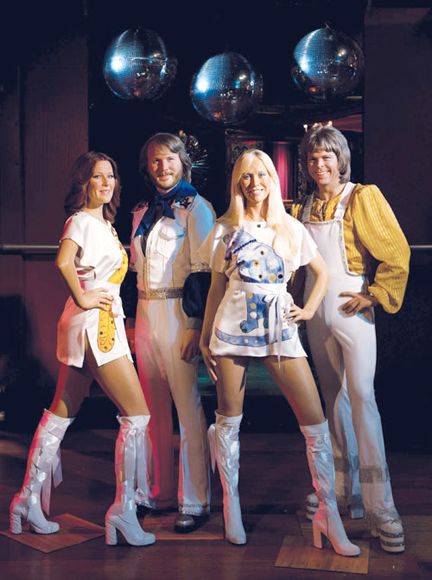
ABBA'S HISTORY
Originally named "Björn & Benny, Agnetha & Frida", their first recordings arrived in 1972 after they formed, their most well-known songs of the time period being "Hej, gamle man" ("Hello, Old Man"), She's My Kind Of Girl, People Need Love, and their first big single in 1973, "Ring Ring", which would go on to be the title track of their debut album released in the same year, Ring Ring.
Around this time, manager Stig Anderson grew tired of the band's long name and began referring to them privately as "ABBA", which at the time was a fish-canning company located in Sweden. Since the company had been unknown outside of Sweden, however, Anderson believed the name could work in international markets. A contest would be held later in a Gothenburg newspaper to determine the band's new name, of which ABBA would be the winning pick and decided on as the band's official name in the summer of that year. After negotiating with the fish-canning company for rights to the name, the band was finally, officially known as "ABBA", and would release their subsequent albums under that name.
ABBA would go on to get their big break in 1974 with their single "Waterloo", performing the song on Swedish television for Melodifestivalen 1974, and then later on the Eurovision Song Contest of that same year, of which "Waterloo" would be the contest's winning song. The song's success in Eurovision would lead it to chart on the billboard in many European countries, as well as charting in the top ten in the United States, Canada, Australia, and South Africa. "Waterloo" would also go on to be the title track of the band's second album, Waterloo (1974).
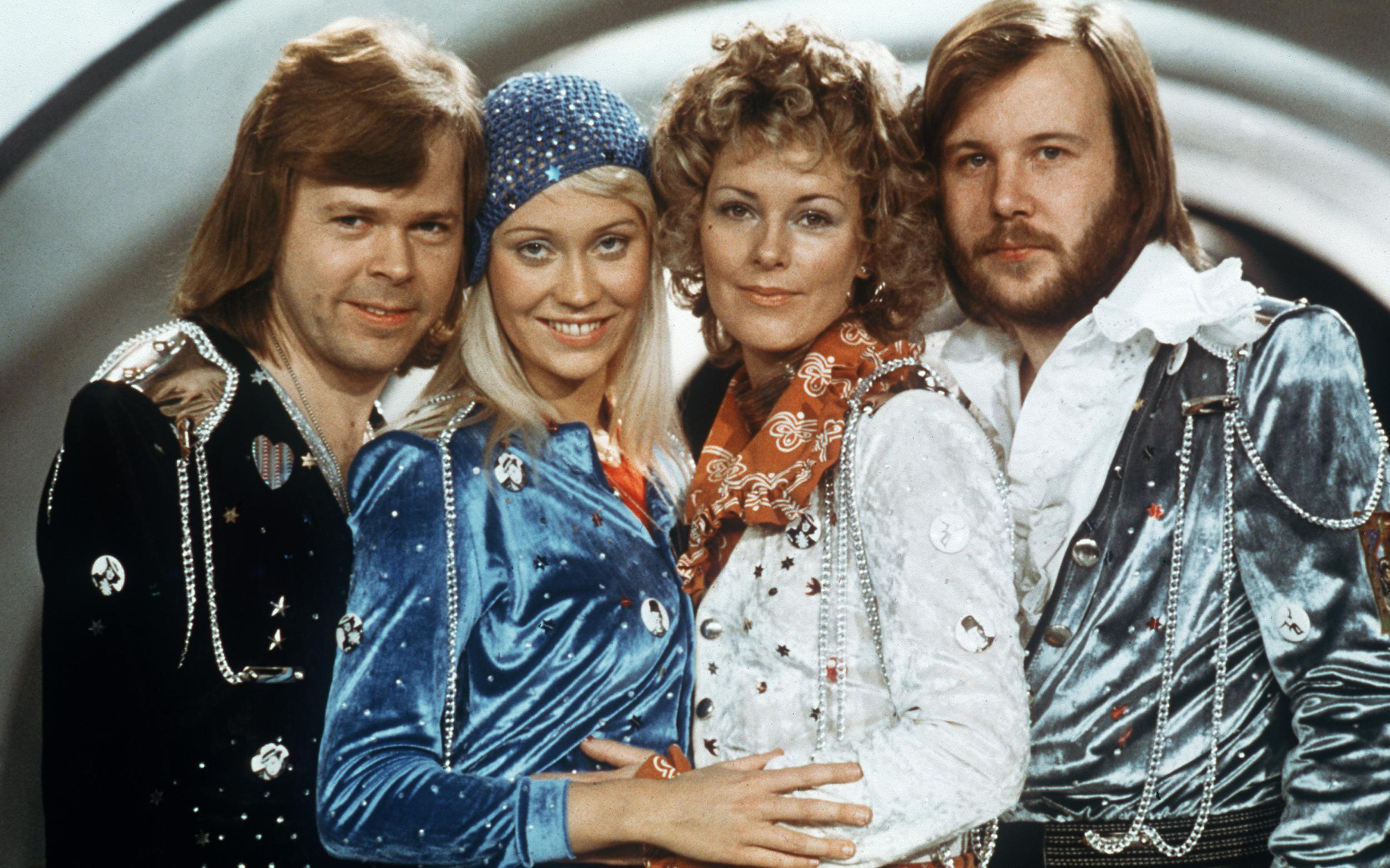
After their following singles failed to chart the same as Waterloo did, there was speculation the band would go on to be just a Eurovision one-hit-wonder. But ABBA would go on to rock international charts once again with their songs "I Do, I Do, I Do, I Do, I Do", "SOS", and, one of their most widely known hits today, "Mamma Mia". Their Greatest Hits compilation would release in early 1976 with inclusion of the new single "Fernando", which became yet another international hit for the band and was added to their fourth album Arrival. Arrival would be ABBA's biggest album yet, containing hit after hit, such as "Money, Money, Money", "Knowing Me, Knowing You", and, of course, their single biggest hit that's still widely known today, "Dancing Queen", which would top the charts in the US at a staggering number one on the Billboard Hot 100.
ABBA would embark on their first major tour in 1977. Newly regarded as superstars, they performed in European countries and Australia. Their first tour was met with a few hiccups, namely an accident during their Sydney perfomance where Frida slipped on stage amid rainy weather, and a bomb scare during one of their concerts in Perth. Alongside their Australian tour, ABBA: The Movie, a mockumentary film about the band, would be released along with their promotional album for the movie, ABBA: The Album. The Album, though not as well received as Arrival, still contained quite a few hits, such as "The Name of the Game", "Take a Chance on Me", and "Thank You for the Music."
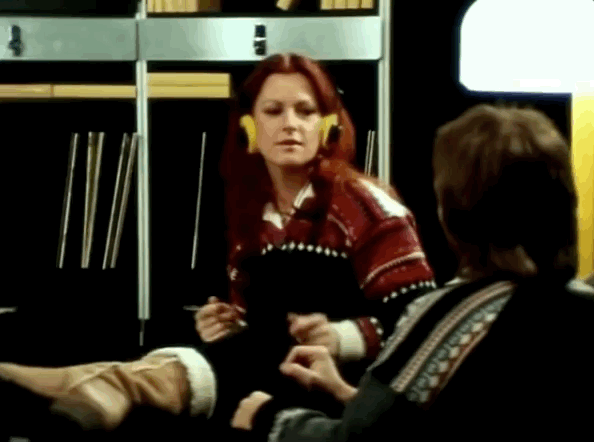
In 1979, Björn Ulvaeus and Agnetha Faltskög announced they would be getting divorced, stirring conversation from fans and press alike on how this would affect the band's work. After more hounding from the media though, Björn Ulvaeus and Benny Andersson would secretly travel to the Bahamas to finish writing songs for the band's new album. ABBA would delve into the world of disco with their next album Voulez-Vous, releasing the hits "Chiquitita", "Does Your Mother Know", "Gimme! Gimme! Gimme! (A Man After Midnight)", "I Have a Dream", and "Angeleyes". Alongside this, they would tour in North America, and, once again, Europe.
In 1980, ABBA would release their seventh album, Super Trouper, which would utilize a more synthesized sound and personal lyrics. Super Trouper had the hits "Lay All Your Love on Me", "Super Trouper", and "The Winner Takes It All", the last of which has been misunderstood to be written about Agnetha and Björn's divorce, with Björn, who wrote the song, stating it was more generally written about divorce and break-ups, as opposed to his own personal experiences, and Agnetha stating she had not been the loser in their divorce. Also in 1980, ABBA would release a compilation of Spanish-language versions of their songs for the Spanish-speaking fans: Gracias Por La Música.
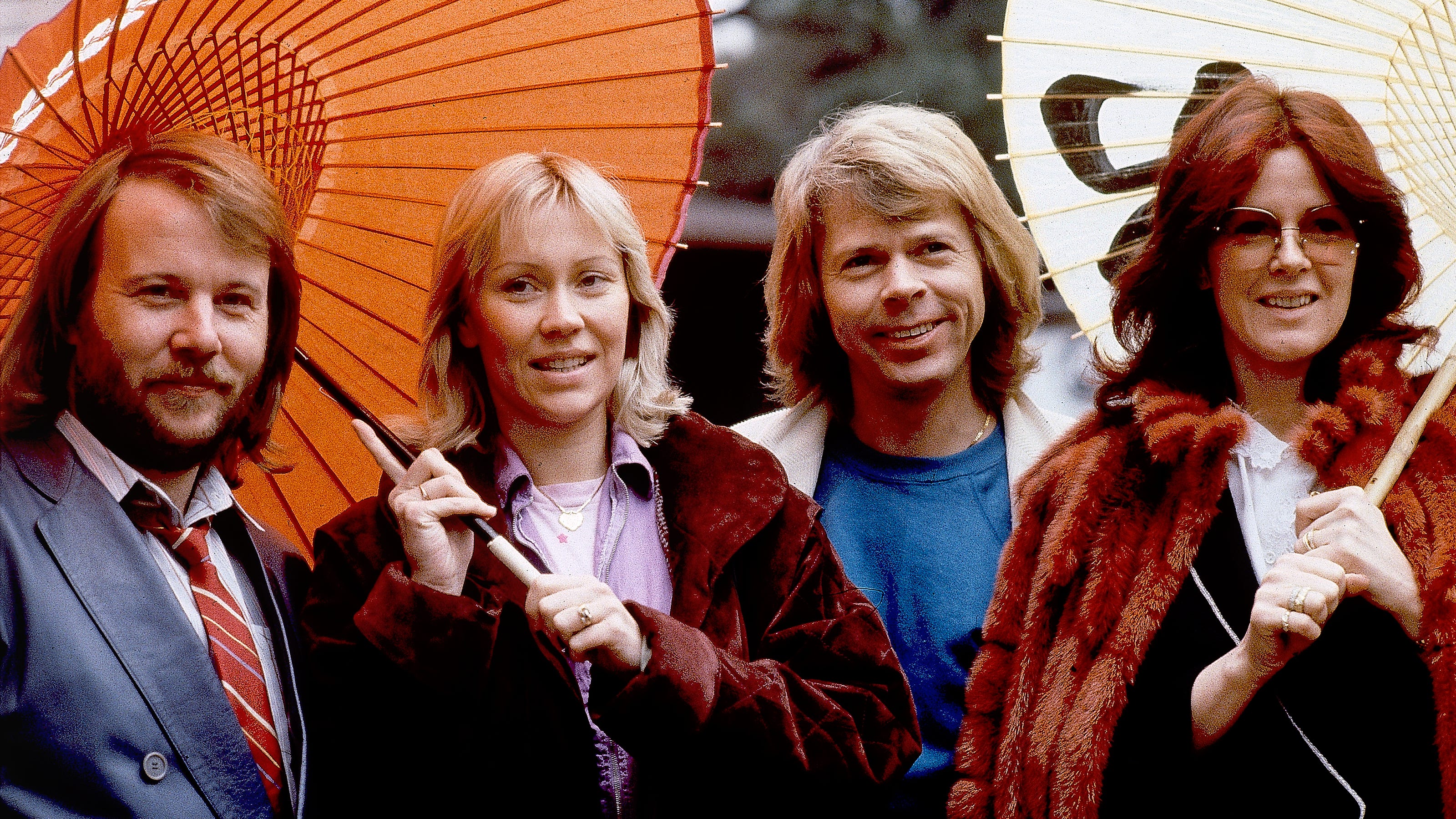
1981 would see Benny Andersson and Anni-Frid Lyngstad filing for divorce as well, with statement that their marriage had been struggling for years. Amid the band's superstardom, the members' personal lives had suffered and had now resulted in collapse of both marriages. The band's eighth album, The Visitors, released in 1981 with a more mature sound songwriting wise, but still distinctly within the pop genre. The songs on the album would address topics such as failed relationships, aging, loss of innocence, and the threat of war. "One of Us", would be one of ABBA's last chart-topping songs, with The Visitors as a whole seeing less success as an album compared to their previous releases.
1982 would mark some of ABBA's last recording sessions as a group, with the songs "You Owe Me One", "I Am the City", and "Just Like That". ABBA never officially announced some of indefinite break of end for the group, but it was widely accepted after their final performance on December 11, 1982 that they had disbanded. Remarking on their single "The Day Before You Came", Björn Ulvaeus said, "we might have continued for a while longer if that had been a number one." After this, individual members of ABBA would see some success as solo artists, with Björn and Benny delving into stage music and Agnetha and Frida delving into solo pop albums.
Agnetha Faltskög - Wrap Your Arms Around Me (1983)
Agnetha Faltskög - One Way Love (1985)
Frida - I Know There's Something Going On (1982)
Frida - Shine (1984)
REUNION
There was debate for many years on whether ABBA would reunite or not, with press interviewing the former members on if they were willing to reunite, the most vocal statements being from Agnetha and Björn.
"I think we have to accept that it will not happen, because we are too old and each one of us has their own life. Too many years have gone by since we stopped, and there's really no meaning in putting us together again." — Agnetha Faltskög
"There is simply no motivation to re-group. Money is not a factor and we would like people to remember us as we were. Young, exuberant, full of energy and ambition." — Björn Ulvaeus
However, on June 6, 2016, all four former members of ABBA would appear together at a private party in Stockholm to celebrate Björn and Benny's first meeting and Agnetha and Frida would perform the song "The Way Old Friends Do" before being joined in by Björn and Benny.
It would be officially announced in October of that year that ABBA was reuniting, and in 2017 they would start recording new music for the first time in 34 years. The new album would be launched alongside a digital project, labeled a "digital entertainment experience", that would feature "life-like" avatar forms called "ABBAtars" based off of the band as they appeared in their late 70s tour. Originally due to launch in 2019, the project would be delayed once 2020 reached as a result of the COVID-19 pandemic. The band's first new album in 40 years would be released on November 5, 2021.
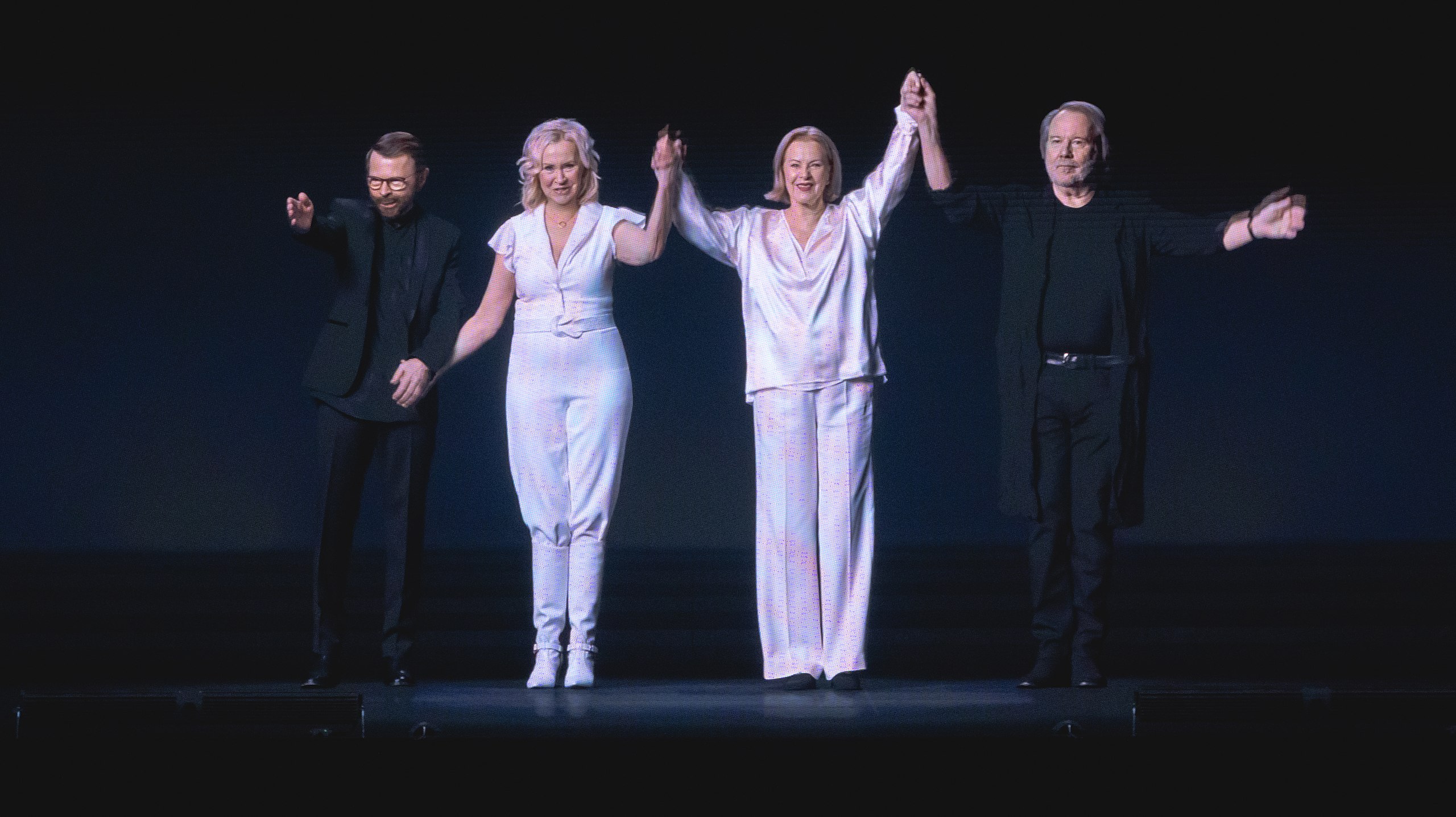
ABBA's pre-recorded curtain call at the end of a ABBA Voyage concert. (May 27th, 2022)
WHAT'S MY CONNECTION TO ABBA?
My first initial exposure to ABBA's music as a kid had been through A★TEENS and their covers of ABBA songs, and I was about maybe 4 or 5 at this time. Eventually I got to listen to the originals through my parents and ABBA was instantly cemented as one of my favorite bands ever. ABBA is a super important band to me, and their songs were a fundamental part of my childhood.
My parents got the privilege to hear their music as it came out in the 70s and 80s, and when they had me, they shared ABBA's music with me as well. My parents had the ABBA Gold compilation CD of their greatest hits (of which I am PROUD to have my own copy of now), and my mom in particular would play ABBA's songs for me very often when I was growing up.
It wasn't until I became a teenager that I decided to revisit ABBA and look more into them as a band and their songs that I DIDN'T get to hear as a little kid, as well as Agnetha and Frida's solo albums. This even further cemented my love for them as a band, and during the rough patches I had in highschool their music was very comforting for me and grounded me when I struggled the most. I always listened to their songs on the bus ride to and from home, and I would listen to them while I drew.
Particularly, I've become very attached to their album The Visitors, and I would consider some of the songs on that album to be my favorite songs of all time. I think it's a criminally underrated album, and I found a lot of comfort in its songs in particular as a teenager. I also developed a lot of attachment to Agnetha Faltskög's solo albums, particularly Eyes of a Woman (1985) and A (2013).
My favorite ABBA songs are "Under Attack", "Head Over Heels", "Super Trouper", "The King Has Lost His Crown", "Don't Shut Me Down", "Merry-Go-Round" and "Take a Chance on Me".

